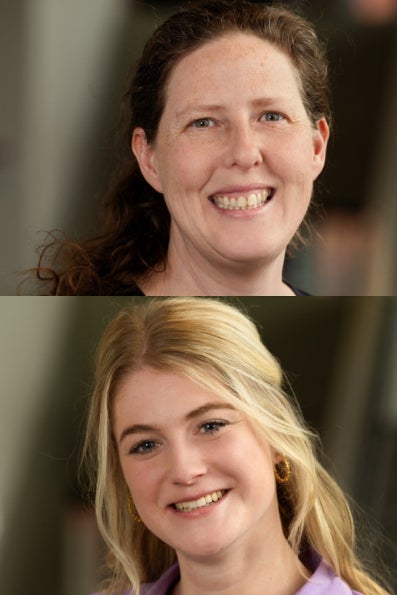At the Department of Communication Science, such opportunities are recognized. Students and teachers work together in innovation teams, where students are treated as equal colleagues. “This provides a fresh, student point of view and keeps the academic curriculum up-to-date and relevant.”
Listen to the “customer”
An educational innovation team is a collaborative effort within which teachers and students work together to improve education. In the Department of Communication Science, three such teams were set up to fuel innovative teacher-led projects and further develop the academic and methodological learning pathways. In these teams, students stand shoulder to shoulder with professors, department heads, and education professionals. Thus, they’re true colleagues. Esther Schagen highlights that this collaboration “is an adventure for both sides, but that’s what makes it exciting.”
“If you really want your education to thrive, you must take the opinions and perspectives of everyone involved into account.”
Esther, with her background in the commercial sector, explains how she learned that you can never sell a product without first listening carefully to the customer. One of these “customers” is student Joëlle Kat. She is part of the communication team and is (partially) responsible for the social media, the Open Day, and the website. Along with her team, she launched the Medialogica project, designing and teaching lessons for secondary schools to offer a sneak peek into the academic world. “By tapping into the student perspective, the lessons instantly become more engaging and attract more new students to Vrije Universiteit Amsterdam,” says Joëlle.
Criticism? Hired!
A key step in collaborating with students is getting to know them as more than just students. “By talking about their backgrounds, hobbies, and interests, you get to know them and their strengths,” says Esther. “Pay close attention to the critical ones. I once hired a student just because he gave me criticism on my lessons.” Together, they improved the course. Plus, she makes it a point to bring a student to important meetings or interviews.
Of course, it’s not always smooth sailing. Esther notes that as a teacher, you sometimes need to take charge and be strict. Subsequently, the student colleagues can work independently: “Thus, it’s important to remember the hierarchy and realise that student colleagues will sometimes also perform traditional student assistant tasks. Flexibility is key. For instance, flooding them with meetings during exam week isn’t exactly motivating,” Esther adds.


